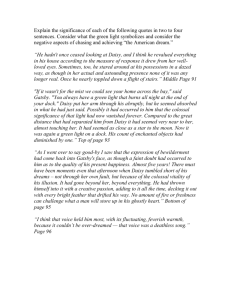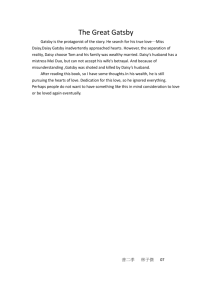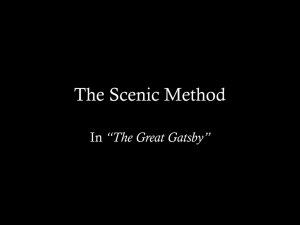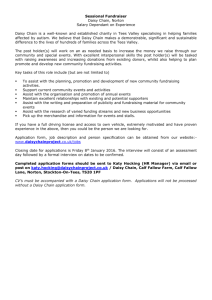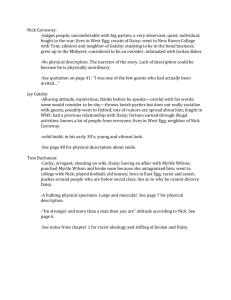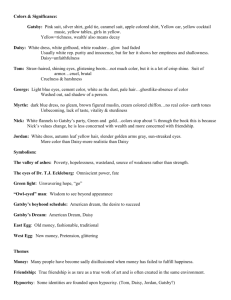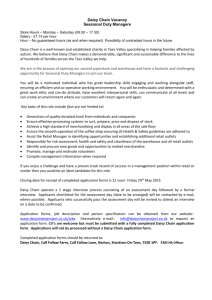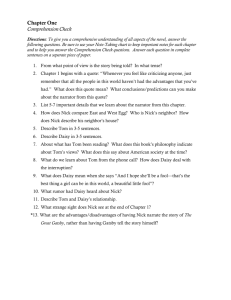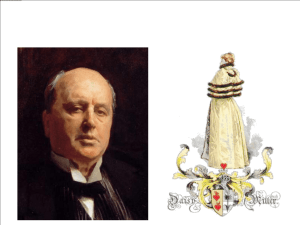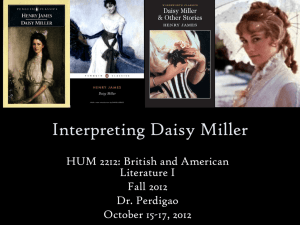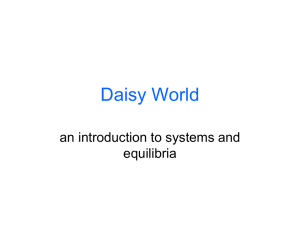The Great Gatsby Quotes to discuss Directions: please read, think
advertisement
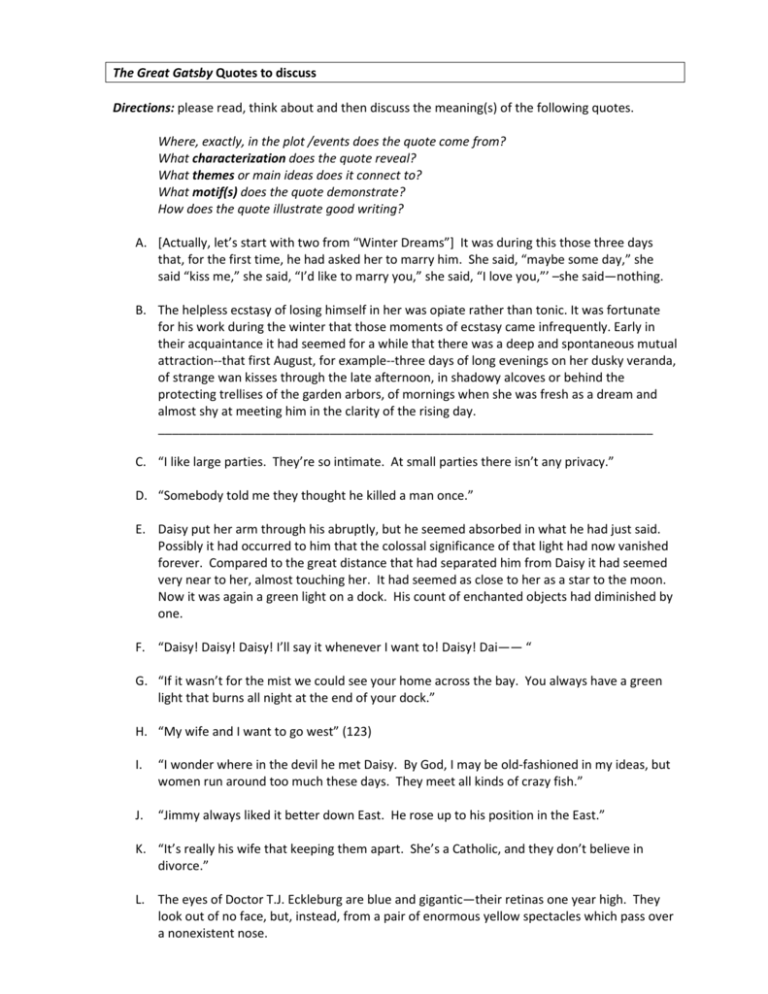
The Great Gatsby Quotes to discuss Directions: please read, think about and then discuss the meaning(s) of the following quotes. Where, exactly, in the plot /events does the quote come from? What characterization does the quote reveal? What themes or main ideas does it connect to? What motif(s) does the quote demonstrate? How does the quote illustrate good writing? A. [Actually, let’s start with two from “Winter Dreams”] It was during this those three days that, for the first time, he had asked her to marry him. She said, “maybe some day,” she said “kiss me,” she said, “I’d like to marry you,” she said, “I love you,”’ –she said—nothing. B. The helpless ecstasy of losing himself in her was opiate rather than tonic. It was fortunate for his work during the winter that those moments of ecstasy came infrequently. Early in their acquaintance it had seemed for a while that there was a deep and spontaneous mutual attraction--that first August, for example--three days of long evenings on her dusky veranda, of strange wan kisses through the late afternoon, in shadowy alcoves or behind the protecting trellises of the garden arbors, of mornings when she was fresh as a dream and almost shy at meeting him in the clarity of the rising day. ________________________________________________________________________ C. “I like large parties. They’re so intimate. At small parties there isn’t any privacy.” D. “Somebody told me they thought he killed a man once.” E. Daisy put her arm through his abruptly, but he seemed absorbed in what he had just said. Possibly it had occurred to him that the colossal significance of that light had now vanished forever. Compared to the great distance that had separated him from Daisy it had seemed very near to her, almost touching her. It had seemed as close to her as a star to the moon. Now it was again a green light on a dock. His count of enchanted objects had diminished by one. F. “Daisy! Daisy! Daisy! I’ll say it whenever I want to! Daisy! Dai—— “ G. “If it wasn’t for the mist we could see your home across the bay. You always have a green light that burns all night at the end of your dock.” H. “My wife and I want to go west” (123) I. “I wonder where in the devil he met Daisy. By God, I may be old-fashioned in my ideas, but women run around too much these days. They meet all kinds of crazy fish.” J. “Jimmy always liked it better down East. He rose up to his position in the East.” K. “It’s really his wife that keeping them apart. She’s a Catholic, and they don’t believe in divorce.” L. The eyes of Doctor T.J. Eckleburg are blue and gigantic—their retinas one year high. They look out of no face, but, instead, from a pair of enormous yellow spectacles which pass over a nonexistent nose. M. “The poor son of a bitch.” N. They were careless people, Tom and Daisy—they smashed up things and creatures and then retreated back into their money or their vast carelessness, or whatever it was that kept them together, and let other people clean up the mess they had made… O. So we beat on, boats against a current, borne ceaselessly back into the past. P. Involuntarily I glanced seaward—and distinguished nothing except a single green light, minute and far away, that might have been the end of a dock. Q. “…If we don’t look out the white race will be—will be utterly submerged. It’s all scientific stuff; it’s been proved.” R. As I went over to say good-by I saw that the expression of bewilderment had come back into Gatsby’s face, as though a faint doubt had occurred to him as to the quality of his present happiness. Almost five years! There must have been moments even that afternoon when Daisy tumbled short of his dreams — not through her own fault, but because of the colossal vitality of his illusion. It had gone beyond her, beyond everything. He had thrown himself into it with a creative passion, adding to it all the time, decking it out with every bright feather that drifted his way. No amount of fire or freshness can challenge what a man will store up in his ghostly heart. As I watched him he adjusted himself a little, visibly. His hand took hold of hers, and as she said something low in his ear he turned toward her with a rush of emotion. I think that voice held him most, with its fluctuating, feverish warmth, because it couldn’t be over-dreamed — that voice was a deathless song. S. “You’re acting like a little boy. Not only that, but you’re rude. Daisy’s sitting in there all alone.” T. “’All right,’ I said, ‘I’m glad it’s a girl. And I hope she’ll be a fool—that’s the best thing a girl can be in this world, a beautiful little fool.’” U. “My house looks well, doesn’t it? See how the whole front of it catches the light.” V. “Her voice is full of money.” W. Do you know why we left Chicago? I’m surprised that they didn’t treat you to the story of that little spree.” X. Now I was looking at [Gatsby’s parties] again, through Daisy’s eyes. It is invariably saddening to look through new eyes at things upon which you have expended your own powers of judgment. Y. “They’re a rotten crowd. You’re worth the whole damn bunch put together.” Z. “Can’t repeat the past? Why of course you can!”
